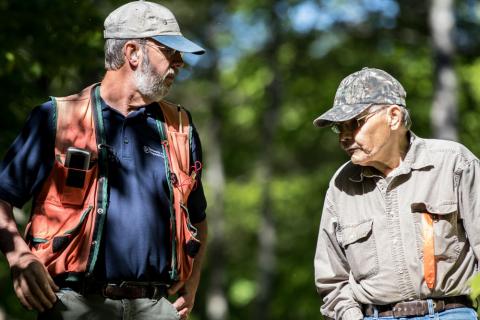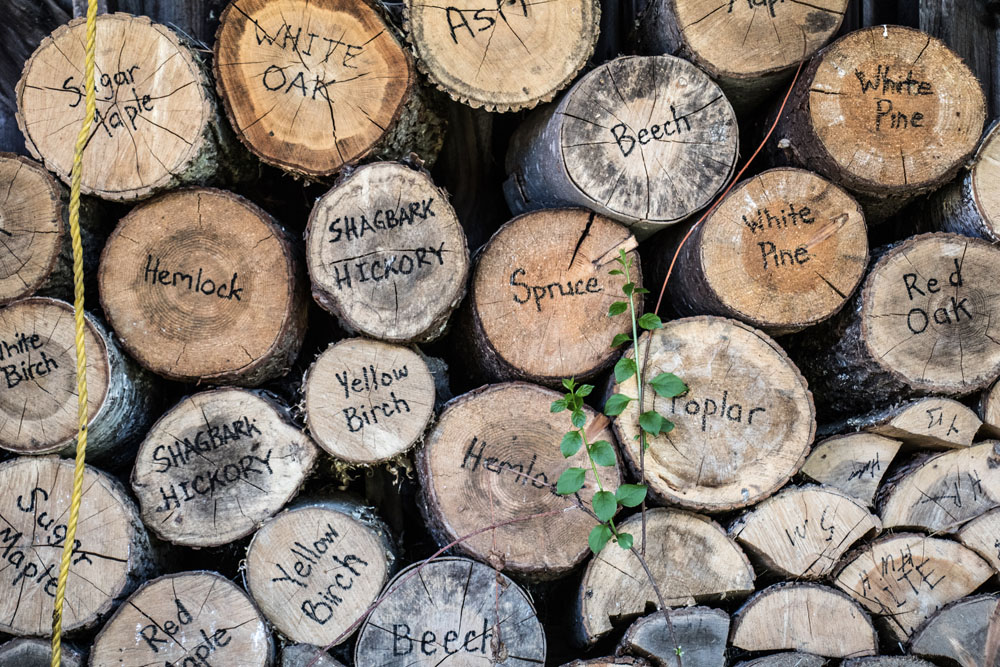Woodlot Wisdom

"When we look at a forest, we are looking 60 to 100 years into the future," says Tim Fleury. Fleury is not a fortune-teller but rather an experienced Cooperative Extension forester who can "see" what a forest will look like far into the future based on a variety of factors such as soil type, plant growth and surrounding land use. "There is so much to address during a walk in the woods, and it all matters."
The good news for landowners is that Fleury and his fellow Cooperative Extension foresters are happy to share their insights. "For woodlots around 10 acres or more, we will walk the property with a landowner, ask them what they want and then help them make a plan to achieve their goal," he says.
For landowners for whom woodlot income is important, Fleury can provide general estimates for how much money a property could produce in timber sales and when those profits could be realized, and he can even suggest legal and tax approaches that will put the most money in the landowner’s pocket. The wisdom is free, which also helps the bottom line.
The initial consultation with a Cooperative Extension forester is a smart first step for a landowner considering a timber harvest, and is typically followed by hiring a private consulting forester who can mark trees, finding a logger and negotiating the timber sale. It is a good public-private relationship that fosters sound forest management and boosts New Hampshire's economy.
But timber harvesting is not the only reason to manage a forest. Fleury points out that "some people want wildlife habitat, others want to cut some firewood to heat their home. Every woodlot and woodlot owner is different. That's why on-site consultations are a must."

Retired consulting forester and landowner Ned Therrien of Canterbury speaks highly of the work Fleury and his other Extension foresters do around the state. "I've known Tim probably 20 years, and I have a great deal of respect for him and Extension," Therrien says. "I can depend on them to give me excellent information. Extension foresters can help a landowner do the right thing."
According to a study by the North East State Foresters Association, the New Hampshire forest products industry contributes $1.4 billion annually to the state economy, employing 7,756 people and supporting forest-based recreation that adds an additional $1.4 billion. More than 66 percent of New Hampshire forests are owned by private landowners who can benefit from the consultation services of Cooperative Extension.
The Cooperative Extension forestry program has proudly supported the forest products sector of the state economy for the last 92 years, providing consultation to landowners, professional development and referrals to private foresters and loggers, and education and outreach on behalf of the state Division of Forest and Lands. To work with a Cooperative Extension forester, contact the Forestry Information Center at 800-444-8978 or forest.info@unh.edu.
This story originally appeared in the 2017 edition of Radius.
